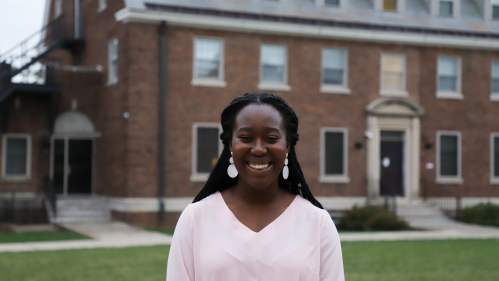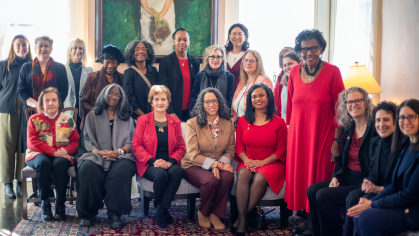When envisioning my dreams for our world, I look at those before me who contributed so much to society. I often think of the quote, "If Black women were free, it would mean that everyone else would have to be free since our freedom would necessitate the destruction of all the systems of oppression" by Combahee River Collective. And similar to singer and activist, Nina Simone, I wonder what freedom means to me and the answer is still "no fear." It's no coincidence that powerful women come to my mind when asking these questions, because it has always been women who have offered me the most knowledge, the most resources, and the most love–that is why women's leadership is so personal to me.
As a senior, I see how impactful Douglass programs have been on my college education, as they have helped me explore new ways to navigate the spaces I enter. When I think about everything that happened in 2020, especially to all the dark skin women who lost their lives unjustly while internalizing my own intersectional identities in a world that has time and time again treated dark skin people poorly, I really am grateful for Douglass' mission.
The research I did through Project Super Undergraduate Research Program on "Exploring intersectionality Among Faculty Development During A Pandemic" was critical to my education. In addition, programs like Black Women's Voices run by Black staff mentors and Knowledge and Power: Issues in Women's Leadership reminded me that my experiences are real and that I have always mattered. Being the only Black person or woman in any space can be very intimidating, but seeing that representation through Douglass programs is inspiring and reminds me that, yes I may be different, but I have so much to bring to the table!
In education, women's leadership means creating an environment that chooses to uplift, educate, and guide women towards any path that they choose for themselves. Schools that embody this mission do not let society dictate students' narratives, but instead empower student scholars to author their own. Douglass is this place. The change starts now.



